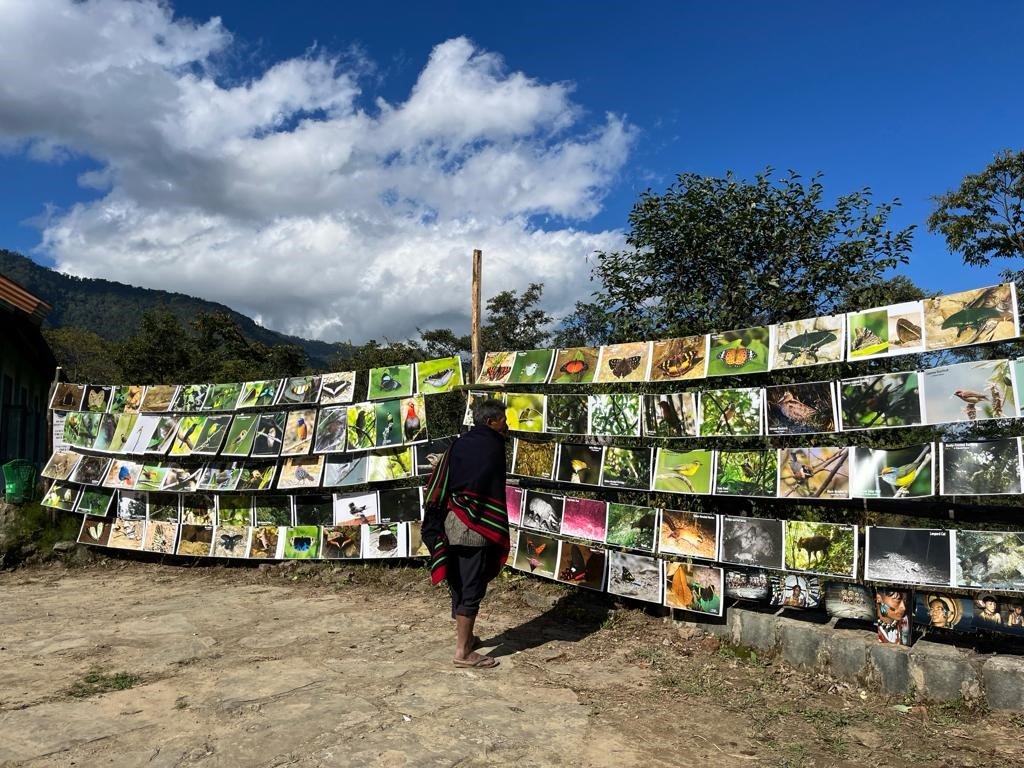The Khonoma Nature Conservation and Tragopan Sanctuary (KNCTS) Trust commemorated 25 years of conservation on December 12 at the community hall in Terhotsiese, Khonoma.
In his address, Sharingian Longkumer, the Speaker of the Nagaland Legislative Assembly, drew attention to the remarkable parallels between his village and Khonoma. He praised Khonoma for effectively confronting the various challenges related to conservation and sustainable development, particularly highlighting the village’s successful preservation of the environment.

Longkumer recognized the commitment, hard work, and awareness instilled among the people of Khonoma in achieving this admirable sanctuary, expressing pride in their accomplishments. He applauded the village for setting a strong example in the conservation and preservation of not only the village itself but also the surrounding wildlife.

Retd. Principal Secretary Thepfulhouvi Solo ,IFS stated that Gerald Durrell was the first to financed the start of Tragopan Sanctuary at Khonoma. “Late Tsilie Sakhrie, the then Chairman of Khonoma Village Council, a man with the ability of a suave Diplomat, he was the Dynamo of energy for the Preservation of Wild Animals and Birds of Khonoma Village,” said Solo.
LH Thangi Mannen, retired Commissioner and Secretary, Founder of Earth Alliance, Vice Chairperson of the Foundation for Social Transformation, and member of the Foundation for Campaign Against Plastic Pollution (FCAPP), stressed the significance of cherishing our natural environment. Mannen also pointed out Khonoma as one of the pioneering villages to receive government funding for constructing eco-tourism infrastructure. She emphasized that eco-tourism is not about extensive development and structures, but rather about the presence of charming houses nestled in their natural surroundings, attracting tourists and visitors.
She also mentioned that Khonoma has garnered international recognition due to its culture and traditional practices.

25 years of community conservation is a moment to celebrate, a moment to retrospect into the past and to project way forward, said Kezhaser Meyase, KNCTS Chairman. Meyase informed that the KNCTS was formerly established on 11 December 1998 with the motto “Care for nature” with a total of 123sq Km including a core sanctuary of 20sq Km conceived and initiated by some few conservation-conscious people.
“The KNCTS so far has been instrumental in organizing, monitoring, conserving and preserving the rich biodiversity. The organization is a non- profit organization, a community-based initiatives conservation which is faring well so far with the community’s deliberate management, collective efforts and contribution toward conservation. And like any other society our success story is also not without hurdles,” said Meyase.
Download Nagaland Tribune app on Google Play

Since the introduction of the concept of conservation, Meyase stated, many people made stern opposition and made a mockery to the radical idea of conservation as ‘Too idealist’. “This is because most of the populace activities and livelihood depends directly on nature. Curtailing so many people’s livelihood, the enormous task of convincing, sensitizing and educating the people could take some few years to come to a logical conclusion.
“The community that takes a U-turn for a sustainable living from all the activities that transgress the law of nature is by far promising and rewarding,” remarked the Chairman mentioning that Khonoma was labelled the first Green village in India in 2005 on 25 of October. The village has also been the Recipient of foreign funds (Gerald Durell Memorial fund), Recognition from BNHS, 465 (Important bird area in India), Recipient of National Bio-diversity Award 2021, Upgrade programme by UNWTO 2023.

He mentioned that the credit of their success story had always been the community involvement by engaging the various organisation in the village which have equal representation from each khels and clans. “Equal benefit sharing, transparency and accountability are the hallmarks of this successful conservation,” stated Meyase.
He also highlighted few challenges and threats they faced such as the arrangement of alternative livelihood to many families whose livelihoods are narrowed down by the impact of conservation, compensation of the loss of crop and livestock (Man animal conflict), poor documentation and databasing information of our rich biodiversity.
During the event, the Minister for women Resource Development and horticultural Salhoutuonuo Kruse also delivered the welcome address.

